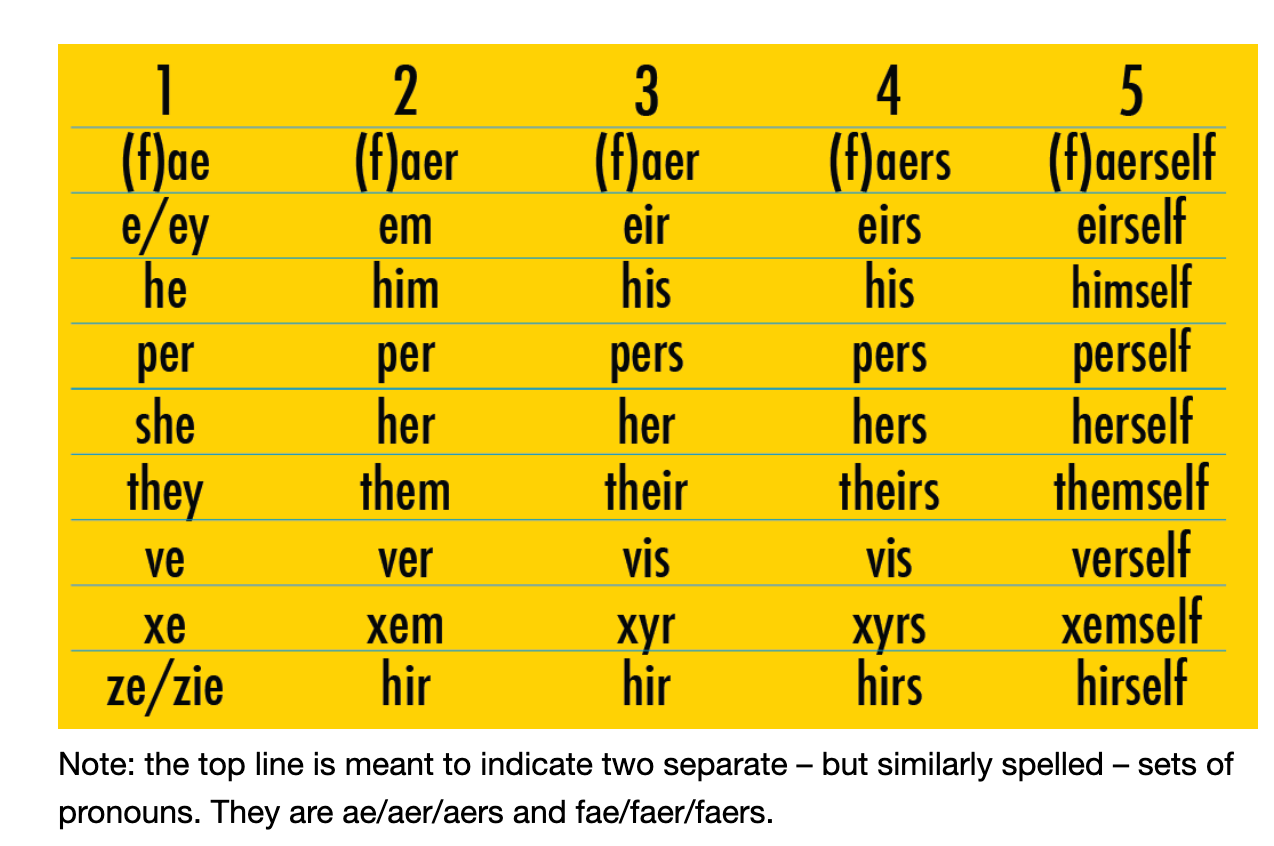A guide to using pronouns
At Voluntarily we respect and acknowledge the principle that people can define who they are and how they want to be addressed and treated.
A basic sign of respect for a person's gender identity is asking for and using their preferred pronoun. When we refer to people in communications such as email or on screen notifications we want to ensure that we use the words people want us to use. While this is often thought of as a gender identity issue it is just as easily considered to be a culture and language issue.
The following chart displays some example pronouns individuals may choose to use.
Source: Gender Pronouns | LGBT Resource Center
Other Resources:
We will capture in a personal profile and use the three main types of pronouns: subject (for example, he); object (him); or possessive (his).
e.g person.pronoun = { subject: ‘she’, object: ‘her’, possessive: ‘her’ }
When we ask people to enter a pronoun list it will be in the form subject, object, possessive preferring , but accepting any whitespace equivalent character as a valid delimiter e.g. space ‘he him his’ or - 'they-them-their'
On saving the field we split it into 3 pronouns and ideally perform some validation so that if common pronouns are used e..g he/she then we can check if they got them the correct way around.
We will use these pronouns in communications about people - for example in an email template about an event. where requestor is the OP. and interested is the potential volunteer
Kia ora {interested.nickname},
{requestor.name} has invited you to {op.title}. {requestor.pronoun.subject} will be in touch shortly with some more details. If you have to cancel at short notice you can call {requestor.pronoun.object} directly. {requestor.pronoun.possessive} phone number is {requestor.phone}.
Which for a cis male { he, him, his } translates to
Kia ora Netty,
Lord Byron has invited you to ‘building robots' He will be in touch shortly with some more details. If you have to cancel at short notice you can call him directly. His phone number is 0800 555 1000
While with a more neutral setting { they, them, their }
Kia ora Netty,
Chris has invited you to ‘building robots' They will be in touch shortly with some more details. If you have to cancel at short notice you can call them directly. Their phone number is 0800 555 1000
Notice how having pronouns available makes for communications that read more naturally.
